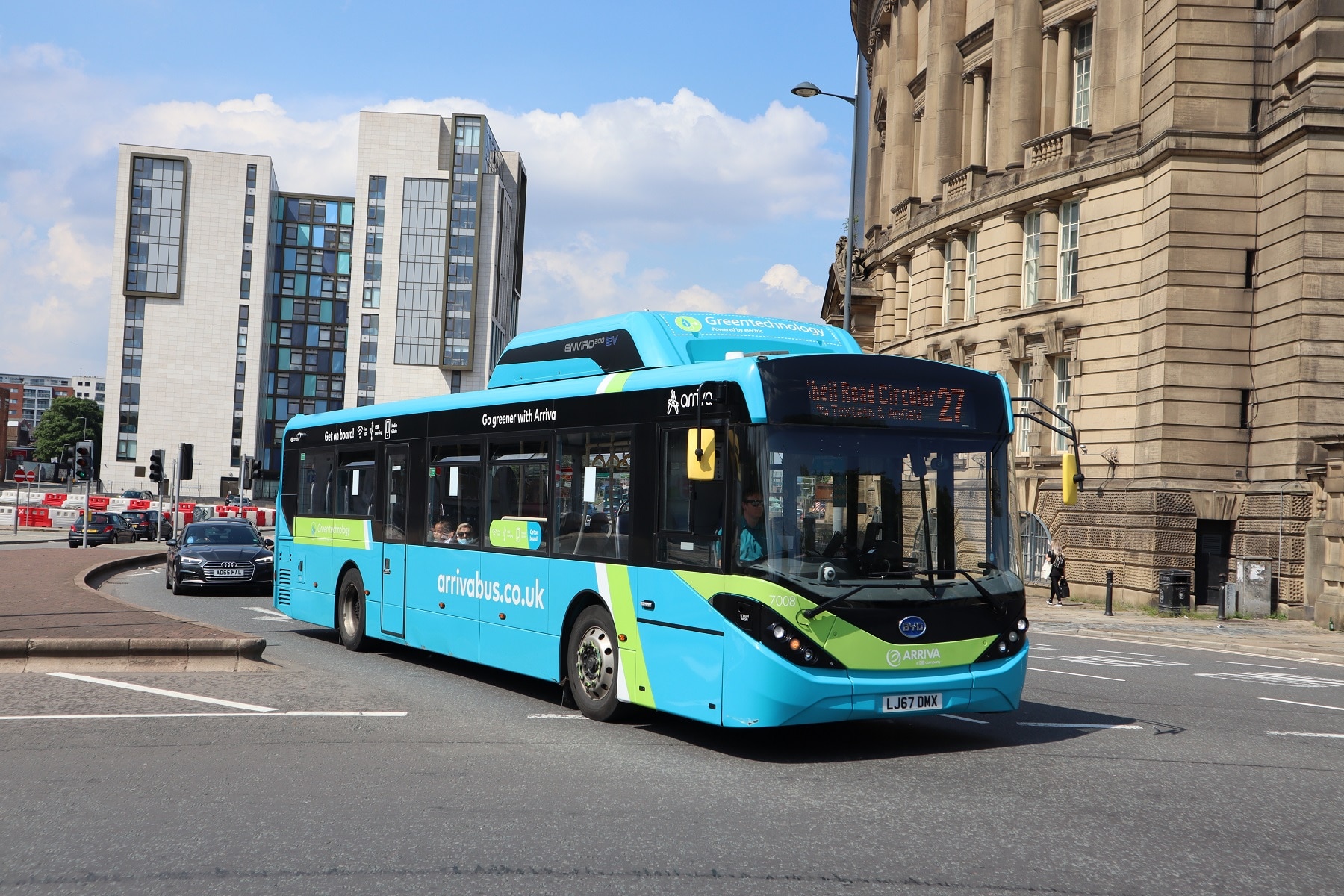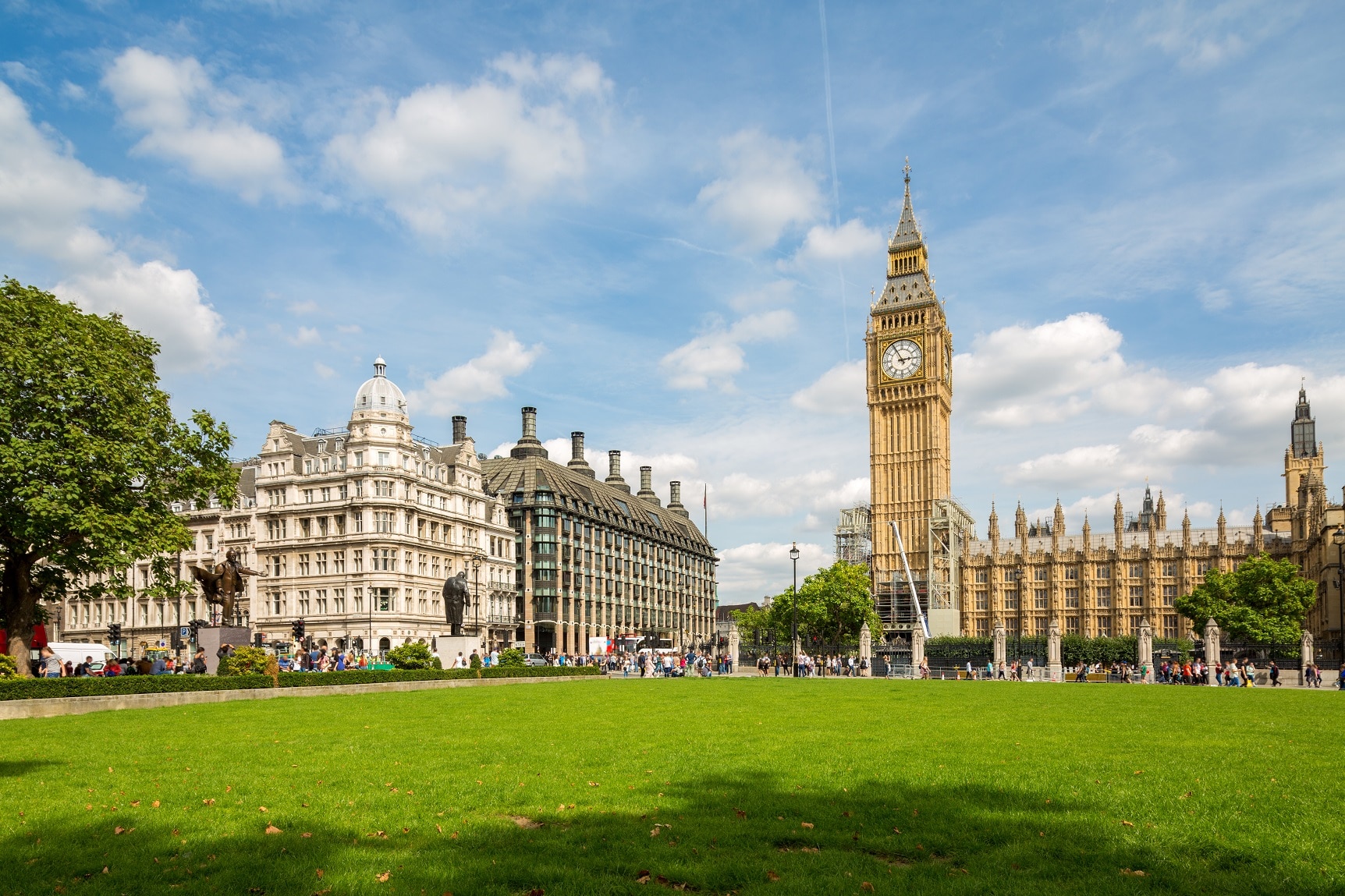On Wednesday 15 July the Low Carbon Vehicle Partnership (LowCVP) held its annual conference digitally. In spite of the pandemic and collapse in patronage throughout the industry, it has shown the pressure is as high as ever to hit future net-zero targets
Now is the time for a green transport revolution, and perhaps time for LowCVP to reconsider its name.
That was the message disseminated at the annual LowCVP conference, in which Secretary of State for Transport Grant Shapps suggested zero carbon, not low carbon, should now dominate the rhetoric coming from the partnership. Although taking place digitally this year, the conference maintained its strong message that zero carbon is what will drive economic growth, and engagement was as high as ever.
Government ministers, industry representatives and senior members of academia joined in the event which saw almost 1,000 delegates in attendance. The virtue of collaboration was strongly espoused in order to achieve the ambitious net-zero targets outlined earlier this year. LowCVP Chair Phillip Sellwood reiterated this. “We all need to pull in the same direction, and aim for the same outcome,” he said.
With the postponement of the COP26 climate summit the need for dialogue is as vital as ever. James Murray, Editor-in-Chief of Business Green and host of the LowCVP summit, made it clear that 2020 is the most ‘important decade in human civilisation’ for the future of green technologies in road transport.
What does net-zero look like? According to LowCVP, it involves active travel – delivering all the benefits of walking and cycling, and mass public transit of coaches and buses in operation. These concepts must be at the heart of transport policy and developed through the next decade.

It’s our responsibility
Sir John Armitt, Chair of the National Infrastructure Commission and National Express Group, a longstanding advocate for the net-zero transition, was keen to impose upon the industry that the private sector is as much responsible for the future investment in zero-carbon infrastructure as government. “The government is responsible for fostering the correct environment and private funding is essential for at least half, if not more, of our infrastructure spend,” he said.
Hydrogen was a pertinent part of the infrastructure debate. “Large scale pilot projects need to take place in order for us to make decisions in the mid 2020s,” Sir Armitt said. “The hydrogen question is critical. Government needs to step up the pace and provide more leadership. Questions such as whether hydrogen can be introduced at scale, be transported safely and whether existing networks can be used need to be asked. We have not got a moment to lose in reaching this conclusion.”
With public transport in a ‘death spiral’ according to Special Advisor to the Wealth Economy at the Bennett Institute, University of Cambridge Dimitri Zenghelis, now is not the time to withhold funding. Coronavirus COVID-19 has proven to be the enemy of innovation, and public transport must be ‘compacted and connected’.
He insisted that private spending must be encouraged to generate a recovery. A credible vision of government led sustainable recovery will be the driver in getting the United Kingdom out of recession.
Key also to this notion of compacted and connected public transport is the ’15 minute city’ concept, recently embraced by Mayor of Paris Anne Hildalgo, where everything necessary to the average commuter is available within 15 minutes of travel. While this may work within London, others were keen to point out that rural areas pose challenges to this concept.

Green policy proposals
But the support for green policy is not in doubt. A global survey of 231 finance ministry, central bank officials and senior economists representing 53 countries (including all G20 members) identifying a subset of policies that perform well both on economic and climate metrics carried out by the University of Oxford identified that coronavirus COVID-19 fiscal recovery packages with high climate potential impact such as clean research and development spending, clean energy infrastructure investment, connectivity infrastructure investment, and investment energy efficient buildings and green spaces are those with the biggest impact both on a potential climate impact and long-term economic recovery.
There was major support for green policy proposals from delegates, including support for a review of infrastructure investment with cancellation of projects that do not reduce carbon emissions (with 72% of delegates in support), 83% in support of an end of internal combustion engine (ICE) vehicles before or by 2035, and 84% believing that a policy lead in the decarbonisation of UK road transport will help to drive economic recovery and innovation.
A strong 92% of industry delegates believe 2020 is the right time to ‘reset’ in terms of decarbonising road transport, despite coronavirus COVID-19, with 84% believing the public will be accepting of a radical policy of change. However, specific policies drew a more mixed result. 75% of delegates believe the electrification of buses through retrofit is a viable option, and there was a split of support for focus on battery electric technology, hydrogen fuel-cell technology, and low carbon renewable fuels. A slim majority of 57% supported fee-per-mile pricing according to vehicle engine emissions.
The £27bn earmarked for new roads in the 2020 budget came under particular scrutiny, with 77% of delegates agreeing that this would be better spent on measures such as fibre broadband, clean vehicle infrastructure and modal shift measures. As many agreed, a ‘win win’ scenario can be achieved for environment and economic recovery with the right policies.
Against this background of private investment, Mr Shapps offered an update on the progress that government has made towards its road transport decarbonisation strategy.
“Coronavirus gives us a unique opportunity,” he said, “to rethink the way we behave and speed up the development of technologies.” He pointed to the £2bn investment to boost cycling and walking and the work with councils to redesign streets, and targets to drive the transition away from fossil fuels. “The government will put its full weight behind the net-zero campaign as we work towards a full transport decarbonisation plan later in 2020.”
Already revealed have been plans to roll out 4,000 zero-emission (ZE) buses across the country and the first UK all-hydrogen bus town. £12m of funding has been allocated to the development of ZE vehicles of the future and charging technology and a further £10m has been earmarked for the installation of 7,000 on-street charging points. Awareness is to be raised with the introduction of green number plates and cheaper parking tariffs for green vehicles.
“This is on top of what we introduced before the coronavirus pandemic, which was a £2.5bn programme to tackle road transport emissions.”

Partnership is crucial
But Mr Shapps says nothing can be achieved without collaborations. The launch of retrofit schemes and information campaigns hint that, according to Mr Shapps, the government will continue to work closely with the industry to deliver zero-carbon road transport. He applauded LowCVP’s work within the bus industry, which is held as a zero-carbon leader and ‘an example for others to follow’. “This is work that is literally saving lives,” he said. “The past few months have been among the most challenging. Our entrepreneurs, cutting-edge technology and supporting government combines to bring about dramatic change, and we stand on the verge of a green revolution. We are putting green transport at the heart of our recovery.”
Andy Eastlake, Managing Director of LowCVP, acknowledges that there is no silver bullet to the low carbon question. Active travel, demand reduction, the adoption of ZE vehicles, and introduction and adoption of low carbon fuels all play their part. “The feedback we got was that all of those are equally important,” Mr Eastlake points out. “There may need to be painful choices to make these economies work – we all have to change aspects of what we do.”
Questions about the embedded emissions of EVs and life cycle questions have been raised. But LowCVP is confident that it has the knowledge and breadth of partnership to address those issues. Hydrogen is seen as one of the ‘greatest opportunities’: “We are picking up the gauntlet and resetting LowCVP in 2020. We are focused on the net-zero future, and that principle of partnership will be what takes us forward,” Mr Eastlake adds.
Equally important as partnership is confidence, says Mr Sellwood. “We need to be confident we can make this happen. If we are confident, investors will be, and the wider population will follow.”
Which ever side of the partnership you find yourself on, LowCVP is confident none of us will find there is ‘little to do’ over the next ten years.



























